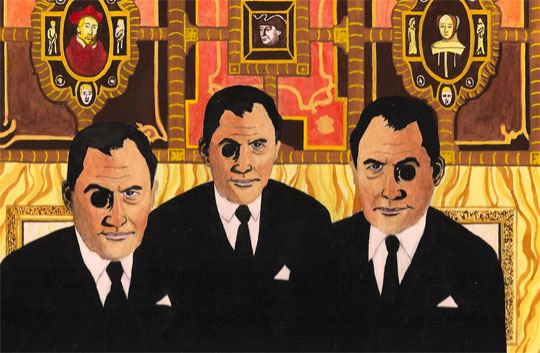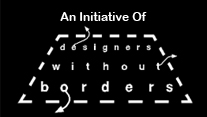Victor Margolin

For years, George Orwell’s novel, 1984, has embodied the dystopian vision of a society where technology has gone awry and fallen into the hands of malevolent rulers, who use it to keep to keep a docile population under their thumbs. The essence of the novel is that people are controlled against their will and that an asymmetric relation exists between controllers, who have all the technology, and people, who are controlled by it.
How strange that 1984, along with another Orwell novel, Animal Farm, was recently deleted from the Kindles that belonged to thousands of customers. The Kindle is a wireless reading device that was invented by Jeff Bezos, founder and CEO of Amazon, which distributes the e-books that customers download to their Kindles for a fee. While, the Kindle is extremely convenient and ideal for travelers in that it can store a large number of books in a very small space, it appears that the books customers pay to download are not secure in their personal devices and can be deleted by Amazon if such action seems justified.
What has become evident in the case of e-books is that a huge difference exists between owning a book as a hard copy or in an electronic version. Purchasing a hard copy may leave a trace on the receipt when the book is purchased but the book itself carries no indication of where or when it was bought. Likewise, there are no restrictions on lending hard copies to friends or selling them as used books. E-books formatted for Kindles, however, are easy to trace by electronic means if necessary and a single Kindle, which has a huge storage capacity, will reveal all the books a purchaser has bought since they are stored on the same machine rather than separately. In fact the books do not exist separately, even as e-versions, independently of the Kindle. The books are formatted so they cannot be e-mailed to others, thus preventing a buyer from passing on a copy to another reader. And now that the truth is known that Amazon can also delete a book from a customer’s e-book library, it appears the customer does not possess the book in the traditional sense of ownership but that it can be taken back if Amazon chooses to do so for any reason.
The question here is how companies like Amazon have been able to persuade thousands of Kindle customers to voluntarily give up their total rights to their book purchases and allow the books to exist in a liminal space where Amazon retains technological control over them. I am from the school that values privacy highly and I deeply resent the changing conditions that limit how electronic products can be owned and used.
Recently a friend and I were making a short QuickTime presentation and wanted to use a tune from a Sonny Rollins album, Way Out West. We chose Sonny’s version of “Wagon Wheels” which we planned to fade out as the movie ended. I own the album on vinyl but do not have the facilities to create an electronic version. Consequently, my friend downloaded the entire album from iTunes and when we tried to mix it with the visuals, we found that it was not possible to fade the music out due to a control on the music’s use. Consequently, I had to go to one of the few remaining music stores in Chicago and buy a CD that we could use.
Controls by Amazon, iTunes, and other companies that sell electronic versions of literature, music, and who knows what else, have changed the idea of ownership. Customers who pay for electronic products allow large corporations to define the limits of their use. I don’t believe iTunes can take back a song once it has been downloaded but the electronic umbilical cord between Amazon and the Kindle introduces a new level of control and the capacity for surveillance. Not only are one’s purchases easily traceable and viewed in relation to other purchases but their uses are strictly managed and their possession by a purchaser is not secure.
The ownership of electronic products creates new conditions for use and possibilities for the invasion of privacy. We do not need actual uniformed guards to prevent us from breaking agreements. This can be done electronically, hence Big Brother ceases to be an evil ruler who may punish someone according to personal whim and becomes instead a system that no individual controls. Today phones, Blackberries, and other electronic devices can be shut off by the companies that service them if there seems to be a reason to do so. Of course, this is also true for an earlier generation of communication devices such as landline telephones and these have weathered the abuses of wire-tapping or shutdowns for lack of paying a bill. But landline phones were not as tightly integrated into a total lifestyle as cell phones, portable computing devices, and other technologies are now. Gurus and seers who work for the likes of Nokia, Intel, Apple, and Microsoft foresee the arrival of ubicomp (ubiquitous computing) when person-to-person communication will be seamlessly integrated with electronic exchanges to the point where a separation between them will be impossible. The consequence of such a scenario is that those who participate in the ubicomp environment will have surrendered a significant portion of their privacy to be part of a social process that records almost everything one does. One might think that such a wave of data would drown anyone trying to make sense of it but engineers are devising ever more sophisticated techniques of data mining that will soon make it as easy to compose a complicated profile of a ubicomp participant as looking up a telephone number in the White Pages.
Is the vulnerability that results from revealing so much about one’s self worth the rewards of phoning, texting, twittering, and generally living on-line as if the potential for surveillance and control were not part of the process? For many people it appears to be. Realistically, however, however, almost no one today, can escape some device that leaves a trace from its use, although there are probably still a few folks who resist by not using e-mail, credit cards, or the internet. They are rare but any thoughtful person today must decide how much they wish to subject themselves to the whims of those who control the electronic sphere. Will they accept the limits of owning MP3 music or purchasing e-books or will they recognize what they are trading off for such commodities and make different decisions about their value? The point to note here is that these commodity coups are not achieved by brute force. They are handed to the victors by consumers who do not think deeply enough about the consequences of what they are doing. To quote Walt Kelly’s Pogo, “We have met the enemy and he is us.”
Victor Margolin, Professor Emeritus of Design History in the Department of Art History of the University of Illinois at Chicago and a founding editor of DesignIssues, is a regular contributor to Design-Altruism-Project.











September 3, 2009 at 5:37 am
Of course, Victor. However, in my context, the pre-requisite for autonomy is equal opportunity. Here, access to technology is deeply divided, and loaded with and within the powerplays and politics on the ground. So when bloggers from Iran are taken as representing the general population, I worry, even if my politics affirm their positions. Hence, I guess my qualifier is not to automatically equate techno-autonomy with dissolution of centralized power.
August 19, 2009 at 5:30 pm
I agree with Arvind that power is an issue. What I highlighted in my essay is that more and more power is being encoded into technology with the consent of consumers. This leads to more surveillance, more direct control of how applications are used and so forth. When applications remain on a server rather than physically in the device, they can be manipulated by outside interests. Hence, the encouragement to store files on servers rather than in one’s own computer leaves those files open to intrusion or attack by hackers or others who may have issue with them and the ability to access them. The solution as I see it is more technological autonomy and less involvement with systems that leave one’s participation open to either surveillance or manipulation.
August 19, 2009 at 10:01 am
I teach at an art/design school that’s based in a fairly orthodox suburb in north Bengaluru (Bangalore’s new localized name). Our students come from all over India, and a few from overseas as well. Even though our student community is highly diverse, they look – and act – like they were from one single tribe, a tribe that probably populates every design campus in the world. Our students have always had a volatile relationship with their neighbours, and have been at the receiving end of innumerable verbal and physical assaults. Stripped of their elite communal habitats, they are exposed as a highly miniscule and vulnerable bunch of young adults, occupying the lower end of the power equation suddenly. The local police sympathize with us but nudge us about the students’ culpability: how they dress, how they walk on the streets, how they smoke or drink, the kind of music they play, how loudly and at what hours of the night – they suggest, all this creates discomfort and resentment amongst their conservative good neighbours and gives the local do-gooder goon the moral bravado to rough them up from time to time. After all, they plead, the police can’t be there to protect everyone at all times, can they?
I table this still-simmering story only to bring to our collective notice the nature of power, of control that exists not only between corporate institutions and citizens, but even amonst citizens themselves. Minorities are sought to be controlled by majorities, who demand ‘assimilation’ and greater homogeneity with the majoritarian stereotype. Which of course means adherence to the control structures and systems of the majority. So when a girl student of mine walks out on the streets wearing a tee shirt and jeans, she is ‘asking for it’ – asking to be ‘tamed’ by the upholders of public decency and morality, and subtly or not so subtly, with approval from the law enforcers.
An experiment that was tried by one of our students was to deploy technology – turning cameras into the face of harassers with the implied threat of capturing them and exposing them. It had limited success, but there was a rash of thefts and attempted thefts at stealing laptops, cameras, mobile phones from our student housing (no casue & effect suggested here). Nokia ran an experiment on peer-to-peer location annotation (“how safe is this locality?”) in an effort to explore the market for techno-enabled street signage. However, all these “innovations” are too few, far between and do not face the core issue: that of cultural difference, power and control. Until we get to more such core issues, no amount of techno-palliative will suffice, only spinning off more and more abstract forms of community that works as long as there is connectivity and electricity. But the moment the lights go out, our raw human impulse once again takes over.